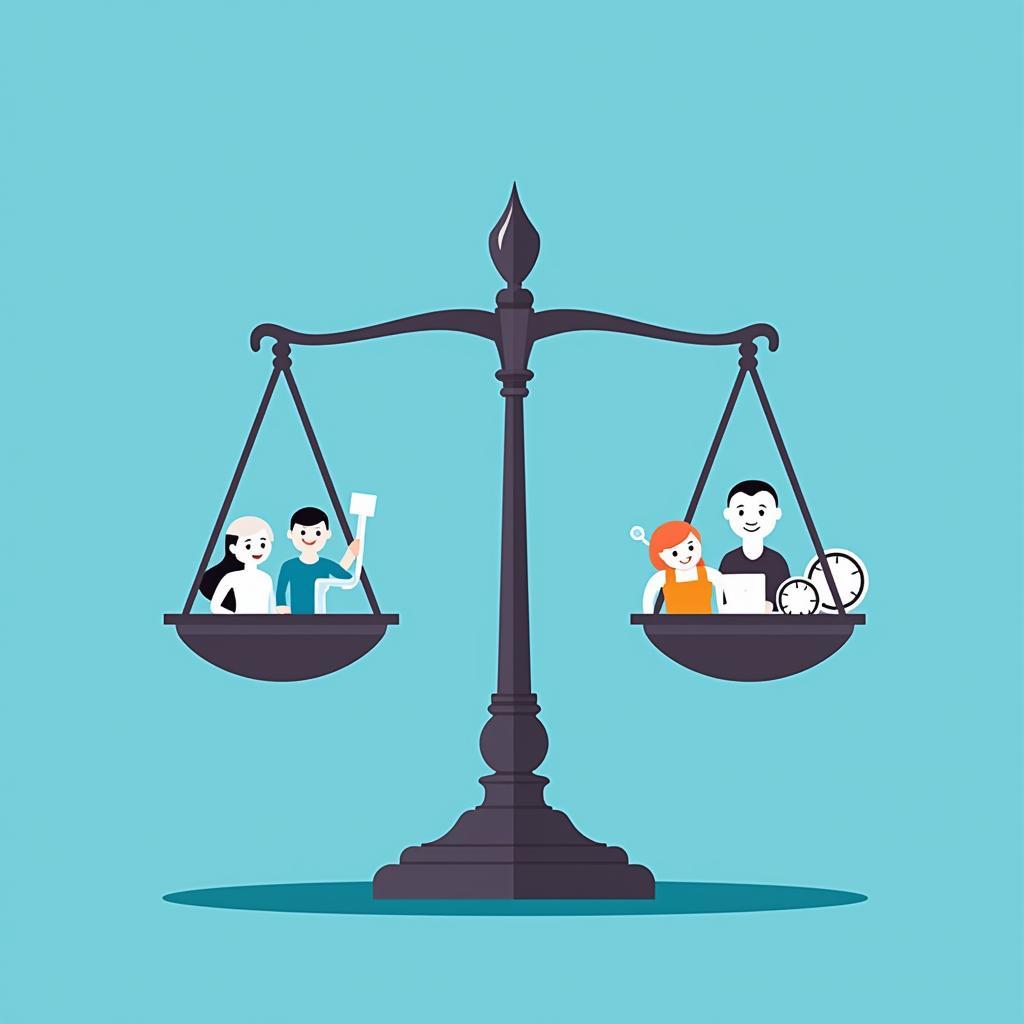Artificial Intelligence (AI) regulation and its impact on employment has become an increasingly common topic in IELTS Writing Task 2. Based on recent exam patterns from 2022-2023, questions about AI regulation have appeared in approximately 15% of tests across major testing centers. Similar to why ethical AI development matters, this theme reflects growing global concerns about technological advancement and job security.
 AI regulation and job protection concept illustration
AI regulation and job protection concept illustration
Analysis of Recent IELTS Question
Some people believe that artificial intelligence (AI) should be strictly regulated to protect jobs, while others argue that technological progress should not be restricted. Discuss both views and give your own opinion.
This question type follows the “discuss both views and give opinion” format, requiring candidates to:
- Examine arguments for strict AI regulation
- Consider perspectives against regulation
- Present and justify their own stance
Band 8.5 Sample Essay
Similar to discussions about should governments intervene in free markets, the debate over AI regulation presents complex economic implications.
The growing concern about AI’s impact on employment has sparked intense debate regarding regulatory measures. While proponents of strict regulation argue that unchecked AI development could lead to widespread job displacement, others maintain that limiting technological advancement would hinder progress and economic growth.
Those advocating for stringent AI regulation emphasize the potential devastating effects on employment across various sectors. Financial services, manufacturing, and customer service roles are particularly vulnerable to automation, potentially leaving millions unemployed. Moreover, the rapid pace of AI development could outstrip society’s ability to retrain and relocate affected workers, leading to significant social and economic disruption.
Conversely, opponents of heavy regulation contend that restricting AI development could have severe consequences for innovation and competitiveness. Historical evidence suggests that technological advancement typically creates more jobs than it eliminates, albeit in different forms. Furthermore, AI technology could enhance human capabilities rather than replace them entirely, leading to increased productivity and new employment opportunities.
In my opinion, while some regulation is necessary, it should focus on ensuring responsible AI development rather than attempting to halt progress entirely. A balanced approach would involve implementing guidelines for ethical AI deployment, establishing retraining programs for affected workers, and creating frameworks for human-AI collaboration. This would help protect jobs while allowing beneficial technological advancement to continue.
 AI and human collaboration in modern workplace
AI and human collaboration in modern workplace
Band 6.5 Sample Essay
Like the debate on regulating AI use, this topic raises important questions about technological progress and employment.
Many people think AI should be controlled strictly because it can take away jobs. In many companies, AI is already replacing workers in different jobs like customer service and factory work. This is very worrying for workers who might lose their jobs. Also, when people lose their jobs to AI, it is hard for them to find new work because they need different skills.
However, other people say we should not stop AI development. They think new technology always brings new kinds of jobs. For example, when computers came, many new jobs were created. Also, AI can help people work better and faster instead of replacing them completely.
I think both sides have good points, but some control is needed. Companies should not be allowed to replace all workers with AI suddenly. Instead, there should be rules about how AI is used and training for workers to learn new skills. This way, we can have both new technology and protect jobs.
Key Vocabulary
- Stringent (adj.) /ˈstrɪndʒənt/ – strict, severe
- Automation (n.) /ˌɔːtəˈmeɪʃn/ – use of machines to do work
- Displacement (n.) /dɪsˈpleɪsmənt/ – forced removal from a position
- Innovation (n.) /ˌɪnəˈveɪʃn/ – new ideas or methods
- Deployment (n.) /dɪˈplɔɪmənt/ – putting into effective action
- Competitiveness (n.) /kəmˈpetətɪvnəs/ – ability to compete successfully
- Framework (n.) /ˈfreɪmwɜːk/ – basic structure of a system
Conclusion
The topic of AI regulation and job protection will likely remain relevant in future IELTS exams. Practice writing essays on related themes such as:
- The role of government in managing technological change
- Balancing innovation with social responsibility
- The future of work in an AI-driven economy
Share your practice essays in the comments section for feedback and discussion with fellow test-takers.


